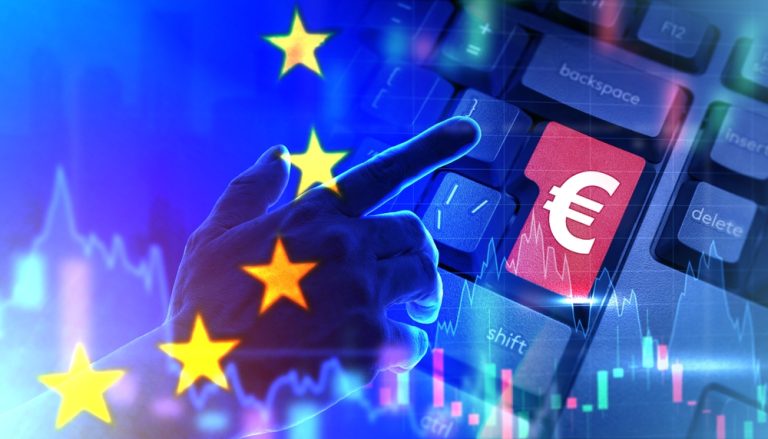European markets closed higher on Monday, driven by a surge in defense stocks following regional security talks that emphasized increased military spending. The Stoxx 600 index fluctuated early in the session but ended the day 1.1% higher, while the Stoxx Europe aerospace and defense index soared 8%, marking its strongest performance in five years.
Defense Stocks Lead Market Gains
The biggest movers included Germany’s Hensoldt, which surged 22.3%, Italy’s Leonardo, up 16%, and Dassault Aviation, which gained 15%. Other major defense firms such as Sweden’s Saab, France’s Thales, and Britain’s BAE Systems also saw significant gains. Rolls-Royce, which operates in both defense and commercial aerospace, added 4.4%, continuing its upward momentum after reinstating its dividend last week.
EU Unveils “Rearm Europe” Plan
European Commission President Ursula von der Leyen announced that EU member states would receive details on the “Rearm Europe” plan, aimed at strengthening the region’s defense capabilities. “Tomorrow, I will inform the member states through a letter about the rearm Europe plan. We need a massive surge in defense without any question,” von der Leyen stated.
She further emphasized, “We want lasting peace, but lasting peace can only be built on strength, and strength begins with strengthening ourselves.”
Ukraine Peace Talks and Rising Defense Budgets
Von der Leyen’s comments followed a Ukraine peace summit hosted by British Prime Minister Keir Starmer over the weekend. The U.K. recently pledged to increase its defense spending as a share of GDP, a stance echoed by other European leaders at the summit.
Meanwhile, Reuters reported that Germany’s incoming government coalition is considering establishing special funds for defense and infrastructure, with up to 400 billion euros ($416 billion) potentially allocated for military expansion.
Robin Winkler, chief Germany economist at Deutsche Bank, described this policy shift as “a fiscal regime shift of historic proportions.”
Economic Data: Inflation and Manufacturing
On the economic front, euro zone inflation eased to 2.4% in February, slightly above analyst expectations of 2.3%. This data comes ahead of the European Central Bank’s interest rate decision set for Thursday.
Additionally, the euro zone Purchasing Managers’ Index indicated that contraction in the region’s manufacturing sector has slowed, marking its least severe decline in two years.
Global Markets Await Tariff Decisions
Across the Atlantic, U.S. stock futures edged higher, and Asia-Pacific markets mostly rose as investors awaited clarity on President Donald Trump’s impending tariffs on key U.S. trading partners.
U.S. Commerce Secretary Howard Lutnick told Fox News on Sunday that tariffs on Mexico and Canada, set to take effect Tuesday, are still “fluid” and may be lower than the initially proposed 25%. Meanwhile, an additional 10% tariff on Chinese imports has been confirmed.
Strengthening Defense and Economic Uncertainty
With defense spending on the rise across Europe, markets have responded positively to the renewed focus on security. However, uncertainties remain around inflation trends and global trade policies, particularly with the upcoming ECB rate decision and potential new tariffs from the U.S.


